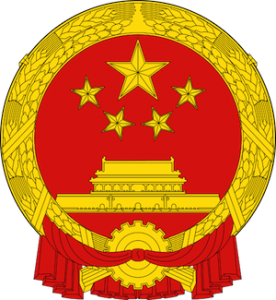Location
For centuries China stood as a leading civilization, outpacing the rest of the world in the arts and sciences, but in the 19th and early 20th centuries, the country was beset by civil unrest, major famines, military defeats, and foreign occupation. After World War II, the communists under MAO Zedong established an autocratic socialist system that, while ensuring China's sovereignty, imposed strict controls over everyday life and cost the lives of tens of millions of people. After 1978, MAO's successor DENG Xiaoping and other leaders focused on market-oriented economic development and by 2000 output had quadrupled. For much of the population, living standards have improved dramatically and the room for personal choice has expanded, yet political controls remain tight. Since the early 1990s, China has increased its global outreach and participation in international organizations.
China is a communist state.
Source: CIA World Factbook
Members:
Resources
Displaying 36 - 40 of 70Detailed Rules of Guangdong Province on Implementation of Urban Land Use Tax.
These Rules are formulated in accordance with the Interim Regulations of the People’s Republic of China on Urban and Town Land Use Tax. The Text, consisting of 17 articles, provides for the rules and procedures relevant to the urban and town land use tax to be satisfied in Guangdong province.
Administrative Measures for collection and use of compensation fees for water and soil conservation.
These Measures, consisting of 31 articles, aim to regulate the administration on collection and use of compensation fees for water and soil conservation, promote water and soil erosion control work and improve the ecological environment. Compensation fees for water and soil conservation shall be collected from production and construction entities and individuals who damage to soil and water conservation facilities and landscape vegetation in the mountainous area, hilly area and other areas determined in the soil and water conservation planning.
Law on the Mediation and Arbitration of Rural Land Contract Disputes.
The aim of this Law is to settle disputes concerning rural land contract management in a timely and just manner, to ensure farmers' rights and promote rural economy and social stability.The law sets out principles related to the use of mediation or arbitration for the settlement of land disputes. When a dispute arises, the parties concerned can reach a compromise on their own, or resort to a village committee or local government for mediation.
Measures of the Tibet Autonomous Region on implementation of farmland occupation tax.
These Measures are formulated in accordance with the Interim Regulations of the People’s Republic of China on Farmland Occupation Tax.The Text, consists of 16 articles, provides for the rules and procedures relevant to the farmland occupation tax to be satisfied within the administrative area of the Tibet Autonomous Region.The term “basic farmland” as mentioned in Article 7 of the Interim Regulations of the People’s Republic of China on Farmland Occupation Tax refers to the farmland in the basic farmland protection range as given in pursuance of the Regulation on Protection of Basic Farmlan
Regulations of Jiangsu Province on Public Ecological Forests.
The purpose of these Regulations is to strengthen the construction and protection of public ecological forest, improve the ecological situation, maintain ecological safety, protect legal rights of public ecological forest owners, and business operators.


